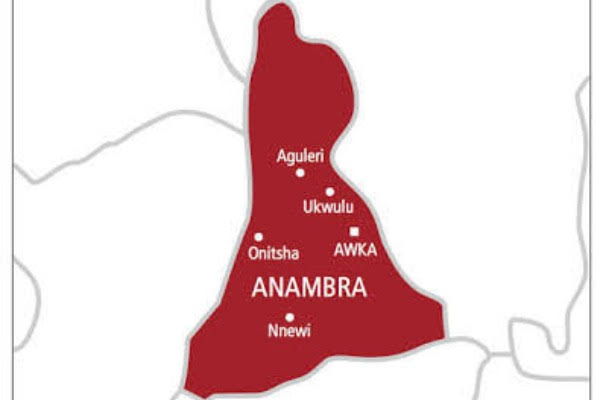Fr George Adimike
Every era tells its story, not merely in the rise and fall of nations, but in the lives of those who carry light into the shadows. The Archdiocese of Onitsha has such a story, one that reads like a living scripture of grace: the Episcopal ministry of Archbishop Valerian Maduka Okeke. His life and ministry resemble the chronicles of biblical shepherds who guided their flock with courage or the wise builders who laid stones not for themselves but for generations unborn. Like Nehemiah rebuilding the walls of Jerusalem, Archbishop Okeke has, stone by stone, built institutions of faith, hope, love, excellence and human dignity. Yet, this is no distant parable. It is a human story of a father who chose to walk with the poor, a teacher who believed education to be a lamp that never dies and a leader who saw in every youth the possibility of greatness, and a shepherd who gives his priests wings to fly to God and greatness. His vision extends beyond the pulpit. As such, he has carried the chalice of grace into the marketplace of human need, proving that the Gospel is not confined to the sanctuary but alive in social renewal and human flourishing.
To speak of Archbishop Okeke’s ministry is to tell of a chronicle where grace is not abstract, but visible in the restored dignity of prisoners, in the miracle stories of physical health restored to the ailing, in the laughter of students, in the livelihood of families and in the quiet gratitude of the elderly. His impact continues to remind many that when grace finds a willing instrument, history itself is rewritten. This, then, is the Chronicles of Grace—a narrative of how faith, vision, love, deep spirituality and humanity have converged in the life of a shepherd and how it leaves imprints that neither time nor memory can erase.

Education: The Crown of Archbishop Valerian Okeke’s Apostolate
Among the enduring legacies of the early missionaries in Onitsha, education stands as one of the brightest gifts, and in Archbishop Valerian Maduka Okeke, this heritage has found a most faithful steward and creative cultivator. From the very onset of his episcopacy, he made clear that education would not only be preserved but advanced, modernized and strengthened as the primary instrument of human formation. It is no exaggeration to say that Archbishop Okeke has become synonymous with education, for he carries it not merely as a sector of administration but as his very substance, skill, and style. A few minutes in his company is often an experience of instruction through words, examples, or quiet deeds. There are little or no surprises in these actions because teaching, for him, is not a task but a vocation.
It was in the seminary, as rector of Bigard Memorial Seminary, Enugu, that his educational vision first revealed itself in bold strokes. There he combined intellectual astuteness with pastoral formation. This laid a precedent for what has unfolded in Onitsha over the past twenty-two years. When he assumed responsibility for the education apostolate of the Archdiocese, he approached it with clarity of vision. He first articulated the philosophical and pastoral rationale, even publishing a pastoral letter on the place of education of the youth as the Church’s greatest legacy. He then designed a roadmap, rallied collaborators through corporate retreats anchored by experts from Pan-Atlantic University led by Prof. Pat Utomi, and began the task of training men and women who would become custodians and protagonists of the mission.
In a deliberate strategy, he sent priests abroad for advanced studies in education and youth formation, producing a crop of highly qualified experts with doctoral degrees from renowned universities such as the Pontifical Salesian University in Rome and leading institutions in the United States, Canada, Nigeria and the Philippines. Today, these men―a dozen of them, among them Fr Paschal Onwugbenu, PhD, Fr Emmanuel Emenu, PhD, and many others, have become the backbone of secondary and tertiary education across the Archdiocese, a network of competence unmatched in its scale and intentionality.
The fruits of this investment are evident in the schools themselves. Catholic institutions in Onitsha have not merely maintained their reputation but have soared to new prominence. Christ the King College (CKC), Onitsha, the “Crown Jewel” of Catholic education, continues to produce national and international champions in academics, sports, and leadership. Regina Pacis Model Secondary School, Onitsha, captured global attention in 2018 when its students, guided by the Archbishop’s vision for girl-child empowerment, won the Technovation World Challenge in Silicon Valley, USA, with their innovative mobile app “FD-Detector.” The pride of that triumph reverberated beyond Nigeria. The school has continued along that path of excellence without break. In the same way, other institutions such as St Charles College, Onitsha, Mater Amabilis Secondary School, Umuoji, St John Technical College, Alor, All Hallows Seminary, Onitsha, among others, have amassed laurels in debates, science fairs, and national examinations and international competitions. These bazaars of awards reinforce the Archbishop’s commitment to education that forms both the intellect and the character.
Archbishop Okeke’s vision, however, does not stop at the classroom. He understands education as a layered mission. At the primary level, parish priests continue to oversee the schools, ensuring a grassroots reach. At the secondary level, the trained specialists lead with modern methods, while at the tertiary level, new institutions have been born. The Holy Family Youth Village at Amansea has become a home away from home for thousands of university students, providing a safe environment where study, spirituality, and community life flourish. The College of Nursing Sciences, Onitsha, is already shaping competent health professionals, while the establishment of Shanahan University, the first and only university in the city of Onitsha, signals a landmark step into the future of higher education.
Together, these institutions mark the Archbishop as not just a custodian of tradition but a pioneer of tomorrow. In Archbishop Okeke’s philosophy, education is ultimately discipleship. Knowledge and love, he insists, must go hand in hand, for one cannot love what one does not know, and all true knowledge leads back to the Creator. Thus, whether in Physics, Law, Psychology or Medicine, students are invited to discover in their disciplines the reflection of divine truth. In this way, education becomes more than preparation for careers; it becomes the purification of the mind and the cultivation of the soul. His constant reminder is that studies demand discipline, and through discipline, the human person is shaped into one capable of resisting ignorance, vice, and sin, while embracing light, virtue and truth.
Spiritual Growth: A Shepherd Teaching with His Pen and His Life
If education has been the mind of Archbishop Valerian Maduka Okeke’s mission, then his pastoral letters have been its soul. From the first years of his episcopacy, he chose the written word as one of the privileged channels of shepherding his people, producing within the first five years alone four major pastoral letters alongside synodal exhortations. In his early pastoral letters, the Archbishop distilled the essence of Christianity into three inseparably linked elements: life, love and faith. At first glance, the emphasis on each theme in different letters might seem like separate priorities, yet in their union lies the Archbishop’s deepest insight: that the Christian vocation is a participation in the life of God, received in faith, and expressed in love. When read together, these letters reveal a coherent vision: faith leads to love, love gives life its meaning, and life in Christ is the true destiny of every believer.
Beyond their theological depth, these letters are marked by a pastoral urgency. The Archbishop did not write as a detached scholar but as a father who saw the dangers of a growing gap between professed religiosity and lived Christianity. In letter after letter, he lamented a society that prays loudly yet tolerates corruption, sings hymns yet indulges in crime, and professes faith yet divorces it from daily life. His appeal was simple but demanding: Christianity must be lived as a way of life. “Faith without works is dead,” he reminded his flock, insisting that love must animate social behaviour, family life and civic responsibility.
Two decades on, his pastoral letters continue to be treasures both to the Local Church and the Global Church. They have positively transformed consciences and inspired the faithful to see Christianity not as a refuge from the world but as a light within it. In fact, if the measure of a shepherd’s success is how deeply he leads his flock into communion with Christ, then Archbishop Valerian Okeke’s pastoral letters stand as a luminous witness. They proudly point to a shepherd who teaches with his pen, preaches with his voice and above all, convinces with his life.
Lights and Healing Balm: A Shepherd’s Cure for Body and Soul
If his schools shape the mind and his pastoral letters form the heart, Archbishop Okeke’s healthcare apostolate is where compassion puts on a white coat. Across the Archdiocese of Onitsha, Catholic hospitals have been strengthened, modernized, and spiritually animated to serve as true “healing balms” for the archdiocesan faithful, the good people of Anambra State and beyond. The network itself is wide—St. Charles Borromeo Specialist Hospital, Onitsha, Holy Rosary Specialist Hospital Waterside, Onitsha, Our Lady of Fatima Hospital and Maternity, Awka Etiti, Immaculate Heart Hospital, Umudioka, St Martin Hospital, Ugwuagba Obosi, among others formally recognized within the Archdiocesan health system and entrusted to capable administrators for mission-driven service.
At the centre of this web of mercy stands St Charles Borromeo Specialist Hospital, Onitsha. The hospital is a multispecialty institution often described as the Archdiocese’s flagship and one of the biggest private hospitals in the West African subregion and a teaching hospital, where medical students get practical experience. Its own record highlights decades of steady expansion in services and facilities. Its growth reveals a trajectory that matches the Archbishop’s insistence on standards, access and dignity in care. The hospital’s growth has been intentionally paired with training pipelines: the College of Nursing Sciences, St Charles Borromeo. The nursery bed for nurses, conceived under the Archbishop’s watch, was founded to ensure a steady stream of competent and faith-filled professionals who see healthcare as a ministry as much as a profession.
The Archbishop’s concern is equally visible at Holy Rosary Specialist Hospital and Maternity, Waterside, where clinical strengthening has gone hand-in-hand with pastoral animation. Recent public updates from the facility point to practical upgrades—additional specialists engaged beyond OB-GYN and cardiology, refurbishment of wards, and new equipment procurement. These are tangible signs of a system that refuses to settle for “good enough” when the poor deserve excellence. Devotional life is deliberately woven into care: family Masses, testimonies of answered prayers, and a visible chaplaincy that help patients and staff draw strength where medicine meets grace. Further along the mission front, Our Lady of Fatima Hospital and Maternity, Awka-Etiti has become a locus of both routine care and charity outreach. Public posts from the Archbishop’s page and the hospital highlight thanksgiving liturgies for the work of the facility and free medical outreaches that bring diagnostics, medicines, and counsel to people who otherwise would forgo care due to financial difficulties and constraints. Even the seemingly “ordinary” rhythms of daily hospital activities and trends such as staff recognition, morale-building and parish-level support are treated as part of the healing ministry. After all, a motivated workforce is itself a healing balm for patients.
The same pastoral logic is discernible at Immaculate Heart Hospital, Umudioka. The hospital is a licensed secondary-level facility serving Dunukofia LGA where the Church’s presence guarantees top-tier healthcare services. The hospital’s public registry details and steady operations speak to the quiet, cumulative impact of mission healthcare in peri-urban communities that can easily be overlooked. And within the broader ecclesial family, the Sisters of the Immaculate Heart run partner facilities such as the Immaculate Heart Hospital, Nkpor. These and many other host of hospitals across the archdiocese form a circle of excellent Catholic healthcare aligned with and informed by the Archbishop’s standards and vision.
Equally telling are the many acts of mercies that never make headlines such as the settlement of hospital bills for indigent patients, providing hospital staff with commendable incentives and packages, among others, which runs into tens and tens of millions. Summed together, these actions describe a shepherd determined that no one be denied healing for want of money or hope.
Self-Reliant Projects: Building Sustainability for the Future
Another striking feature of Archbishop Valerian Maduka Okeke’s episcopal mission has been his keen foresight in ensuring that the Archdiocese of Onitsha does not only evangelize in words but also sustains its mission through concrete, self-reliant projects. His vision has consistently been to build an institutionally stable Church, one that is capable of funding its pastoral, educational and charitable works without perpetual dependence on external donors. This spirit of enterprise has given birth to a range of initiatives that today stand as models of ecclesiastical self-sufficiency in Nigeria.
Among these, the Prison Skill Acquisition Centre stands out as both innovative and deeply compassionate. Located within the Onitsha prison walls, the Archbishop built the centre as a deliberate empowerment platform. Inmates are taught trades such as tailoring, carpentry, computer literacy and other crafts that enable them to reintegrate into society with dignity and purpose. In essence, what would have been years of idleness and despair are transformed into opportunities for redemption and rehabilitation. This aligns perfectly with the Christian vision of restoring lost hope.
Financial independence has also been a core aspect of the Archbishop’s vision. This is evident in the transformation of Oluchukwu Microfinance Bank, a financial institution built to serve the grassroots. Unlike conventional banks that often overlook the poor, traders, and small-scale entrepreneurs, Oluchukwu has become a lifeline for many. By offering loans, savings platforms and advisory services, it provides ordinary people with access to capital, thereby encouraging small businesses to flourish. This initiative, therefore, financially empowers the laity and also builds a culture of financial discipline and strides across the archdiocese.
The Archbishop’s vision also extended into sectors that are deeply relevant for sustainability. The Oluchukwu Oil and Gas and Automobile enterprise reflect his understanding that the Church must adapt to contemporary realities. Through this project, the Archdiocese generates steady income that funds pastoral programs, healthcare, education, and charity. More importantly, it sets an example for Catholic institutions across Nigeria that faith and enterprise are not mutually exclusive but can work together to serve both God and humanity.
In the same line of thinking, the establishment of the Youth Village is perhaps one of Archbishop Okeke’s most forward-looking initiatives. Built with the young people in mind, it is a space for training, creativity, and leadership development. Here, young men and women acquire practical skills, engage in cultural and moral formation, and are given the tools to become leaders both in the Church but in society at large. The Youth Village stands as a citadel of a near perfect Republic, especially in a region where unemployment and idleness among young people often lead to crime or despair. Instead, under the Archbishop’s guidance, students are redirected toward productivity, service, and excellence.
Collaborative Leadership & Pastoral Presence: Shepherding by Bonding and Building
As a pastor who remains close to his flock and meets them at the peripheries of life, the Archbishop’s leadership style underscores solidarity, subsidiarity and support. In him, the Archdiocese of Onitsha has enjoyed the rewards of a father and leader who does not govern from a distance but from within. Such is the strength of the Archbishop’s presence that he journeys through every parish, hospital, school and prison across the Archdiocese.
In greatly increasing the number of parishes in the Archdiocese, he has deliberately decentralized pastoral ministry. This has contributed to the nurturing of new communities of faith throughout the Archdiocese and indeed has created over 120 parishes spread within Onitsha and Aguleri dioceses . More so, his compassion extends to the most marginalized. He visits Onitsha prison three times every year, celebrating Mass, offering solace and praying with inmates. In moving acknowledgment, the Nigerian Correctional Service honoured him with the prestigious title Grand Patron of Nigerian Custodial Services. This style of governance has had ripple effects: communities feel represented and sustained not just by directives, but by a father who shares their burdens, prays with them and invites them into leadership roles.
As the curtain draws on part one of these chronicles, one truth resounds: the story of Archbishop Valerian Maduka Okeke is not merely the story of a man, but of grace at work in time. Like the sower in Christ’s parable, he has scattered seeds of faith, knowledge, healing, and dignity, and the harvest continues to spring forth in countless lives. Like a bridge-builder, he has spanned the gulf between despair and hope, tradition and modernity, faith and daily living. And like a shepherd after God’s own heart, he has not only led from the front but walked among his people, knowing their struggles, sharing their joys, and lifting their burdens.
When history will speak of this era in the Archdiocese of Onitsha, it will remember a shepherd who turned grace into action, and action into an everlasting song of hope.
To be continued
Fr George Adimike
findfadageorge@gmail.com





